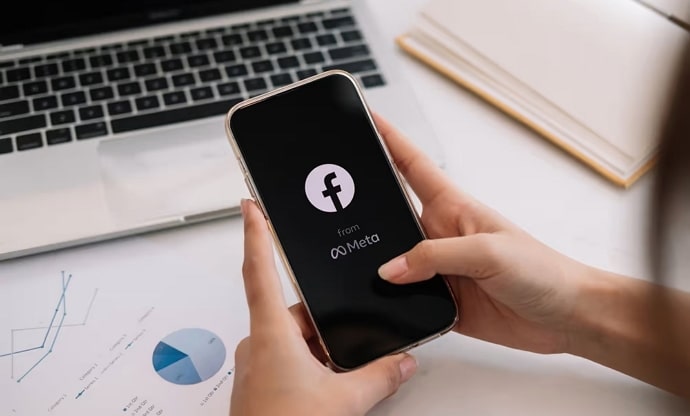In the vast realm of social media, Facebook remains a prominent player, with its Groups feature serving as a platform for individuals to connect, share ideas, and discuss various topics. Facebook groups are a great way to connect with people who share your interests. However, they can also be a breeding ground for harassment, hate speech, and other harmful content.

As with any online community, issues can arise, and members may occasionally need to report content or users for violating group rules or Facebook’s Community Standards. If you see something that violates Facebook’s Community Standards, you can report it.
In this article, we will explore the mechanisms and limitations of this feature, shedding light on the privacy and accountability aspects of reporting within Facebook Groups. Let’s get started!
Can Admin of Facebook Group Find Out Who Reported Something Within The Group?
Facebook Groups offer members the ability to report content or users that violate the group’s rules, Facebook’s Community Standards, or other guidelines. Reporting is a critical tool for maintaining a safe and enjoyable online environment.
When a member reports something within a group, they are prompted to provide a reason for the report. The reported content or user is then reviewed by Facebook’s automated systems and, if necessary, by human reviewers to determine if it indeed violates the platform’s rules.
While the reporting feature is integral to preserving the integrity of online communities, it is also designed to safeguard the privacy and anonymity of the reporting member. Facebook’s reporting system does not automatically disclose the identity of the person who made the report.
This design is in line with Facebook’s commitment to maintaining user privacy and ensuring that members feel safe when reporting content or users that may be causing harm or violating rules.
Facebook Group administrators have access to a suite of tools and features that allow them to manage and moderate their groups effectively. However, the ability to see who reported a specific post or member is not one of these tools.
Facebook does not provide this information to group admins, and for good reason – it helps protect the privacy of the individuals who report potentially harmful content. Admins can see that a report has been made, and they can access reports submitted by members to review and take appropriate action. They are also notified of the outcome of the reports.
If a report leads to content being removed or a member being warned, restricted, or banned, the admin will be informed. However, the identity of the reporting member remains confidential.
Privacy and Trust
The confidentiality of the reporting process is paramount to maintaining trust within Facebook Groups. If users believed that their identities could be easily uncovered when reporting something, it might deter them from reporting violations, and the quality of moderation and enforcement within groups could suffer as a result.
Ensuring the privacy and safety of individuals who report content is a key factor in upholding the credibility and effectiveness of the reporting system. Facebook takes user privacy seriously, and the company has a responsibility to maintain a safe and respectful online environment for its users.
If admins could identify those who reported content or users, it could lead to potential misuse of that information, harassment, or even retaliation, creating an environment that discourages open communication and reporting of violations.
Potential for Abuse
Allowing group admins to identify those who reported content or users could create a host of problems. There’s a risk of admins unfairly targeting members who report legitimate violations out of personal bias or retribution.
This could lead to a chilling effect, where members become hesitant to report inappropriate behavior, knowing that their identities could be exposed to admins with whom they have disagreements.
Furthermore, the risk of information leaks and privacy breaches is significantly higher when user identities are exposed to group administrators. Admins may inadvertently or deliberately share this sensitive information with others, potentially causing harm to individuals who reported violations in good faith.
Therefore, maintaining the confidentiality of reporting data is a safeguard against such potential abuses.
Alternatives for Admins
While group admins do not have the ability to identify those who reported something within their group, Facebook provides them with alternative tools and mechanisms to manage and moderate their communities effectively. Admins can:
Moderate content
Admins can remove or hide content that violates group rules or Facebook’s Community Standards without knowing who reported it. This allows them to maintain a clean and safe group environment.
Set and enforce group rules
Admins can establish clear guidelines and rules for their groups, which members are expected to follow. This proactive approach helps in reducing the need for reporting.
Communicate with members
Admins can maintain open lines of communication with group members and encourage them to report violations. Clear instructions on reporting procedures can help ensure the reporting system is utilized effectively.
Review and take action on reported content
Admins can review the content or members reported within their group and take appropriate actions without needing to know who made the report.
Foster a respectful community
Admins can lead by example by maintaining a respectful and welcoming atmosphere in their groups. Setting a positive tone can reduce the occurrence of violations.
Facebook Group administrators do not have the ability to identify the individuals who reported something within their group. Facebook’s reporting system is designed to maintain user privacy and protect those who report violations, ensuring the safety and trustworthiness of the platform.
While this confidentiality may present some limitations for admins in managing their groups, Facebook provides alternative tools and mechanisms for them to effectively moderate content and enforce group rules.
These tools, combined with a proactive approach to fostering a respectful community, can help maintain a healthy and thriving Facebook Group. The reporting system is a critical component of Facebook’s commitment to providing a safe and respectful online environment for its users.
It encourages users to report content or members who may be causing harm or violating rules, knowing that their identities will remain confidential. This approach not only safeguards user privacy but also upholds the integrity and trustworthiness of Facebook Groups as a whole.
Also Read:





 Bitcoin
Bitcoin  Ethereum
Ethereum  Tether
Tether  XRP
XRP  Solana
Solana  USDC
USDC  Dogecoin
Dogecoin  Cardano
Cardano  TRON
TRON